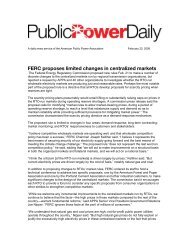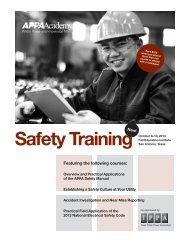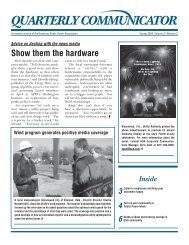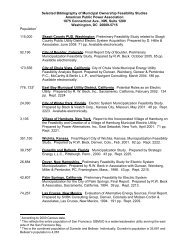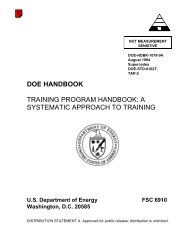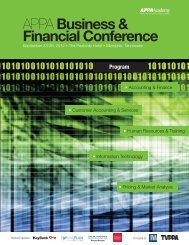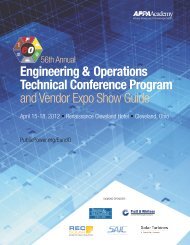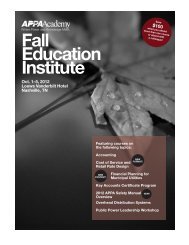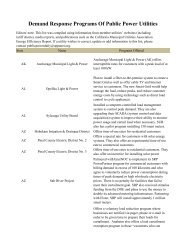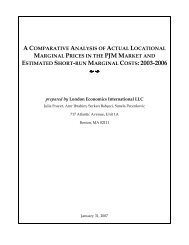Safeguarding Classified and Sensitive But Unclassified Information ...
Safeguarding Classified and Sensitive But Unclassified Information ...
Safeguarding Classified and Sensitive But Unclassified Information ...
You also want an ePaper? Increase the reach of your titles
YUMPU automatically turns print PDFs into web optimized ePapers that Google loves.
Need-to-Know<br />
“Need-to-Know is the determination made by an authorized holder of classified information that<br />
access to the information is required by another appropriately cleared individual in order to<br />
perform official duties.”<br />
Your security clearance does not give you approved access to all classified information. In<br />
addition to a security clearance, an individual must have a “need-to-know” before being given<br />
access to information.<br />
Need-to-know is one of the most fundamental security principles. The practice of<br />
need-to-know limits the damage that can be done by a trusted insider who goes bad.<br />
Failures in implementing the need-to-know principle have contributed greatly to the<br />
damage caused by a number of recent espionage cases.<br />
Need-to-know imposes a dual responsibility on you <strong>and</strong> all other authorized holders of classified<br />
information:<br />
• When doing your job, you are expected to limit your requests for information to that which<br />
you have a genuine need-to-know. Under some circumstances, you may be expected to<br />
explain <strong>and</strong> justify your need-to-know when asking others for information.<br />
• Conversely, you must ensure that anyone to whom you give classified information has a<br />
legitimate need to know <strong>and</strong> the appropriate clearance to receive that information. You are<br />
obliged to ask the other person for sufficient information to enable you to make an<br />
informed decision about their need-to-know, <strong>and</strong> the other person is obliged to justify their<br />
need-to-know. In situations where there is uncertainty as to whether a person has a needto-know,<br />
you should contact the originator of the information for clarification or consult with<br />
the DHS OS/ASD.<br />
The need-to-know principal is sometimes difficult to adhere to as it conflicts with our natural<br />
desire to be friendly <strong>and</strong> helpful. However, its’ importance can not be overstated <strong>and</strong> each<br />
person with access to classified information must maintain a level of self-discipline <strong>and</strong><br />
responsibility in ensuring it is a principal we abide by. Here are some specific circumstances<br />
when you need to be particularly careful:<br />
• An individual from another organization may contact you <strong>and</strong> ask for information about<br />
classified information you have in your possession. Even though you have confirmation<br />
that the person has the appropriate level security clearance, you are also obliged to<br />
confirm the individual’s need-to-know before providing information. If you have any doubt,<br />
contact the information’s originator or consult with the DHS OS/ASD.<br />
• Difficult situations sometimes arise when talking with friends who used to be assigned to<br />
the same classified program where you are now working. The fact that a colleague<br />
formerly had a need-to-know about this program does not mean he or she may have<br />
access to the information. There is no "need" to keep up to date on sensitive<br />
developments after being transferred to a different assignment.<br />
11



